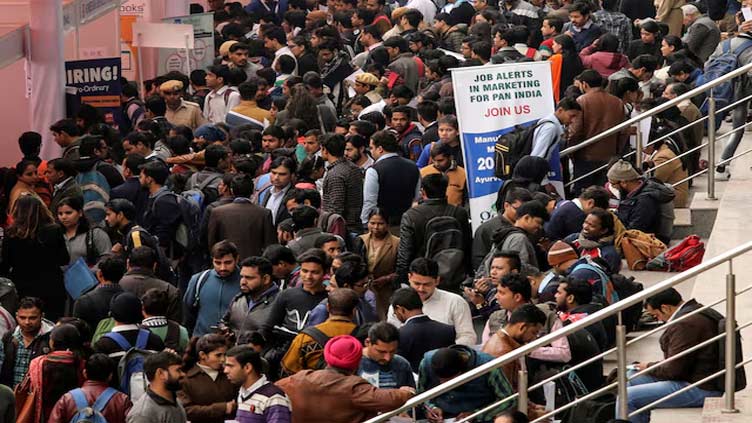India needs lower tax on recruitment services to boost jobs, says industry body

Business
The unemployment rate among young women climbed to 22.7%
NEW DELHI (Reuters) - India should consider lowering the 18% tax imposed on recruitment agencies for providing outsourced staff to big companies, an industry body said on Thursday, which could help boost employment and wages of contract workers.
The Indian Staffing Federation (ISF), a body of 125 recruitment agencies which provided 1.6 million outsourced workers to companies last year, said the new government after the elections ending on June 1 should take steps to support the hiring of more salaried workers.
Unemployment has emerged as one of the key issues in India's election campaign, and opposition parties led by the Indian National Congress have criticised Prime Minister Narendra Modi for not taking much-needed steps to address the issue.
"We pay 18% goods and services tax (GST), equivalent to flying in an airline or eating at a five-star hotel," said Lohit Bhatia, president of ISF.
"This discourages many employers from hiring contract workers through recruitment agencies as they see the steep tax as an additional burden."
India's third-party recruitment agencies paid nearly 242 billion rupees ($2.9 billion) in tax to the government last year on the hiring of 5.4 million supporting staff in IT, retail and manufacturing paid 1.17 trillion rupees in total annually, the ISF said in a statement.
The average salary of outsourced staff was 18,000 rupees a month along with social security benefits, and had grown by 3-4% per annum after the COVID-19 pandemic, according to industry estimates.
Bhatia said if the GST tax rate on staffing services was lowered to 5% it could lead to the hiring of millions of contract workers formally through recruitment agencies and generate higher tax receipts over a period.
The unemployment rate among those aged 15 to 29 years increased to 17% in India's urban areas in the first quarter of 2024, according to data released by the Statistics Ministry earlier this month, from 16.5% in the previous year.
The unemployment rate among young women climbed to 22.7% and 15.1% among men, the government data showed, as more workers entered the job market.


